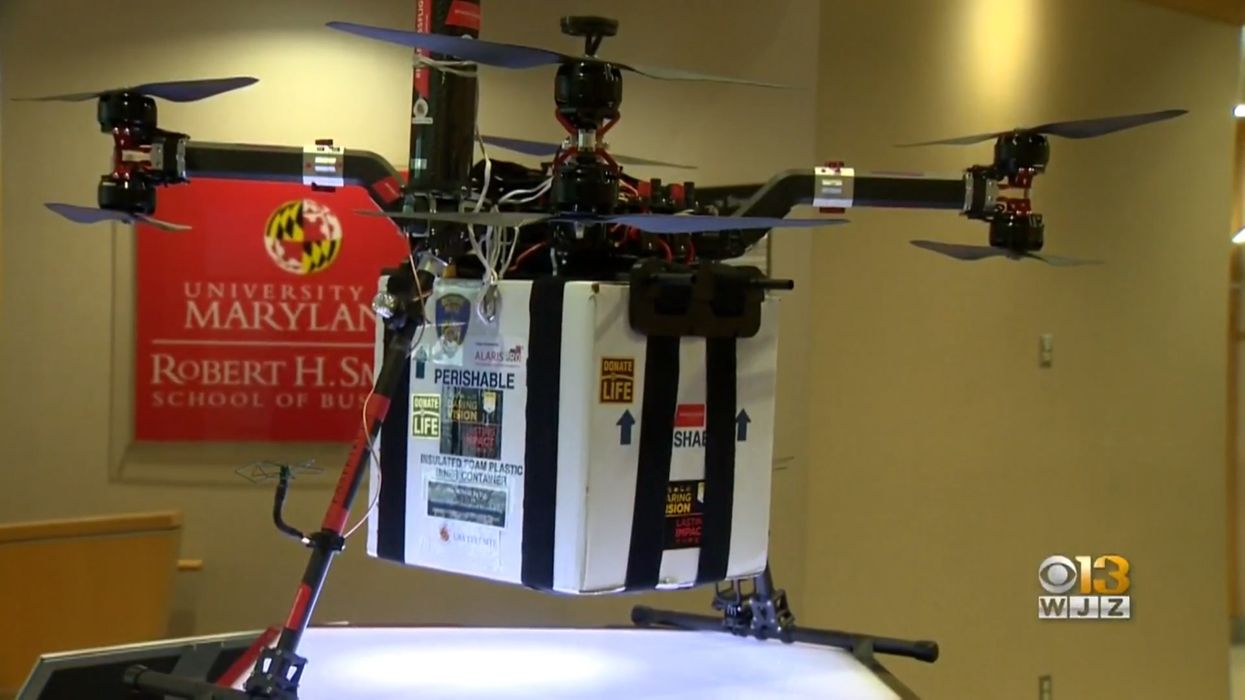
Image source: WJZ screenshot

The move could have huge implications for organ recipients
The University of Maryland Medical School has successfully transported a kidney donation using a drone.
The drone took five minutes to fly the kidney 2.8 miles from the Living Legacy Foundation to the University of Maryland Medical Center. In addition to being able to carry the weight of a human organ and the container needed to preserve it, the drone had the ability to monitor the state of the organ. The whole contraption weighed 50 pounds.
The donor kidney was successfully transplanted into a patient last week. The unnamed 44-year-old female recipient is reportedly recovering at her home in Baltimore.
"This whole thing is amazing. Years ago, this was not something that you would think about," she told the BBC.
Before this final flight, the team behind the project had transported other samples, including another kidney that was healthy but apparently nonviable.
The drone also had a parachute in case its motor failed during transit.
This new technology could help patients who need transplants in areas that might otherwise be inaccessible. Drone delivery of medical supplies and even blood for transfusions is already being employed in remote regions of Africa. However, the process has never before been successfully attempted with a live human organ.
But even with this success, the school is looking at how to make improvements.
"I think moving forward, we're going to need bigger, faster drones," said Joseph Scalea, director of pancreas transplantation at the University of Maryland School of Medicine, according to WJZ-TV. "We're going to need strategic partners that want to help us make this reality. I think if we do this right and do this smart, we can save lives."
In a news release from the school, Scalea called the delivery of a human organ to a donor recipient "a sacred duty with many moving parts," and said that he hoped advancements in technology like this can help to "widen the donor organ pool and access to transplantation."